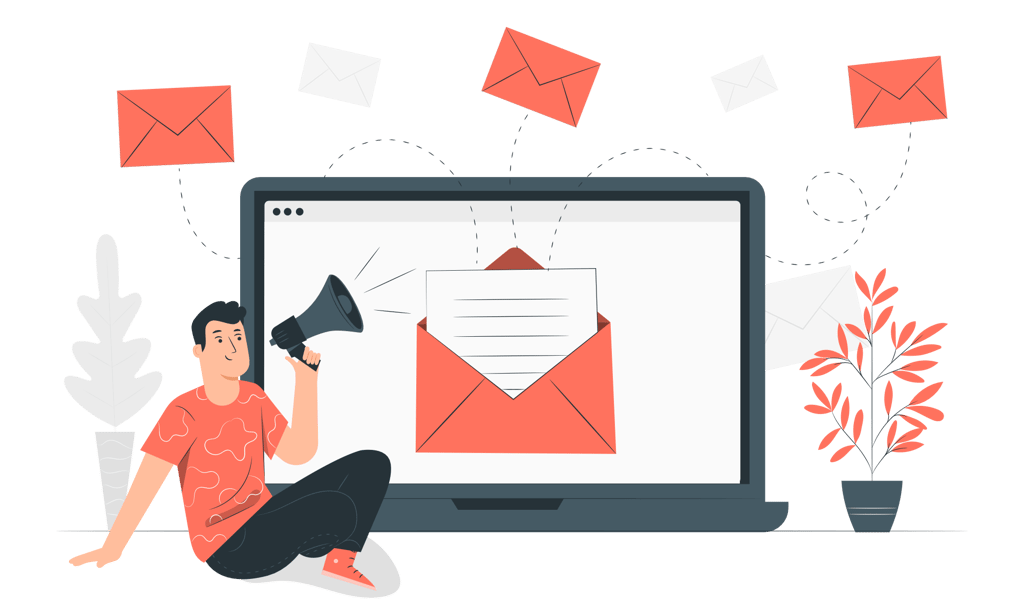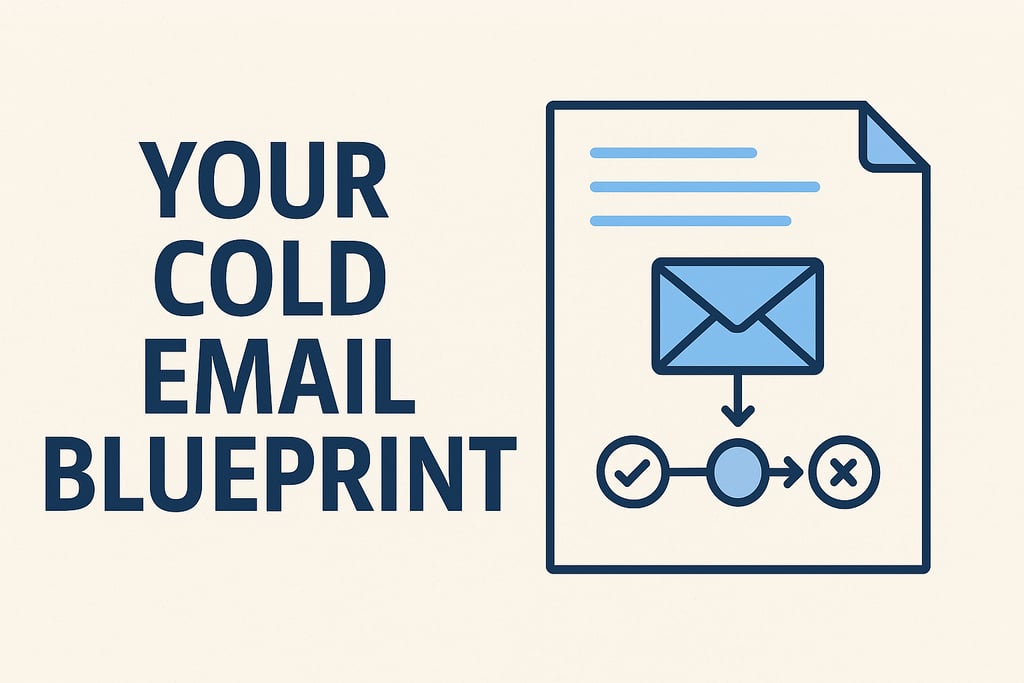Cold Email Blueprint From Europe Gets Big Results
Learn how to send cold emails legally and effectively in Europe with this modern blueprint. Plus, discover 8 smarter outreach alternatives that drive real B2B results — no GDPR risks, no spam.
Mike Parsons
4/3/20254 min read


Cold emails aren’t what they used to be.
In Europe, they’re not just ignored — they’re often risky. With inboxes flooded and GDPR in full swing, hitting "send" without a game plan can do more harm than good.
But here’s the twist: cold email isn’t dead.
It just needs a glow-up that’s legal, respectful, and built for how modern buyers engage.
If you're selling B2B in Europe, this is your new outreach playbook: how to send cold emails that don’t get flagged, plus smarter (and often better) alternatives that get results.
Can You Even Cold Email in Europe?
Short answer: Yes, but not like it’s 2010.
Cold email is allowed under GDPR if you follow the rules—and the key one is “legitimate interest” (Article 6(1)(f), if you’re into the legal stuff).
This says you can reach out if:
You're contacting someone in a business context
The message is relevant to their job
It’s not intrusive or spammy
You offer an easy way to say no
So, no, you don’t need consent for every cold email, but you do need to use common sense.
Watch Out for Local Laws
Even within the EU, countries interpret things differently:
Germany: Very strict. Cold emails are a no-go without prior consent.
France: I am okay with B2B outreach if it’s job-relevant.
Netherlands and Spain: More relaxed, but still expect professional standards.
Your Cold Email Blueprint (That Gets Replies — and Stays Legal)
1. Only email work addresses
Stick to company emails. No personal Gmail or Hotmail accounts unless they’ve opted in.
2. Personalize everything
A generic pitch is a fast track to the spam folder. Show you’ve done your homework — mention a recent post, news, or project.
3. Include the essentials
Who you are
Why you’re reaching out
How it benefits them
A clear opt-out (even just: “Reply with ‘no thanks’ to unsubscribe”)
Keep it short. Keep it human.
A Cold Email That Works (and is GDPR-safe)
Subject: Helping [Company] improve [process] this year
Hi [First Name],
I’m with [Your Company]. We help [job titles like theirs] at [industry] companies streamline [challenge].
I came across [Company] recently and thought this might be useful. If it’s irrelevant, reply “no thanks,” and I won’t follow up.
Would you be open to a short call next week?
Best,
[Your Name]
[Company info + unsubscribe line]
No tricks. No clutter. Just a helpful, respectful message.


What If You Don’t Want to Risk Cold Email?
That's totally fair. Even with compliance, cold emails can feel pushy or risky, especially if you're building trust in a new market.
The good news is that there’s a whole menu of outreach strategies that often work better and have zero GDPR baggage.
Here’s what the smart teams in Europe are doing right now:
1. LinkedIn Outreach — The New Cold Email
It’s professional, expected, and — when done right — incredibly effective.
How to do it:
Send a friendly, specific connection request
Don’t pitch right away. Engage with their content or share something helpful
When the time’s right, offer value and suggest a chat
Bonus points if you use a voice note or short video — people remember those.
2. Webinars & Virtual Events — Education First
If you’re sharing something genuinely useful, people will opt in. And that means you can follow up — legally and warmly.
What works:
Host a short webinar on a hot topic for your audience
Partner with another brand to double reach
Follow up with value: slides, recordings, and optional next steps
This builds trust and keeps your brand top-of-mind — no pitch required.
3. Referrals & Warm Intros — The Trust Shortcut
Nothing converts faster than a trusted intro. Ask your customers, investors, or advisors:
“Do you know anyone else dealing with [problem you solve]?”
They can easily say yes by sharing a quick intro blurb they can forward.
If you can, offer a small referral gift or a sincere thank you. People remember that.
4. Account-Based Marketing (ABM) — Laser-Focused
Instead of blasting a list of strangers, zoom in on 10–20 dream clients and build something just for them.
Here’s how:
Create a landing page or PDF with their name and logo on it
Run LinkedIn ads or send it via InMail
Follow up with a casual message like:
“Hey, I made this for your team. I thought it might be useful.”
This kind of personalization stands out, especially in crowded industries.
5. Slack Groups & Niche Communities — Quiet Goldmines
Join where your audience hangs out — startup Slack groups, industry forums, and Reddit threads.
Don’t pitch. Just help. Share knowledge, answer questions, and show up consistently.
Eventually, people will come to you, asking for help, introductions, or more information about what you do.
6. Event Networking — Real Talk, Real Results
Whether online or in-person, events are back — and they’re a great excuse to start a conversation.
Sponsor a panel, attend a breakout, or join the chat. Then, follow up with context:
“Great meeting you at [event] — wanted to share what we discussed.”
You’re not cold — you’re continuing a real interaction.
7. Content + SEO — Long-Term Lead Machine
Write the guide your customer is Googling. Solve a pain point. Create something worth bookmarking.
Offer a free template or checklist behind a signup form — and boom, you have a warm, compliant lead.
Keep in touch with a newsletter or drip series. They already raised their hand — now it’s your job to keep it interesting.
8. Retargeting Ads — Stay Top of Mind
Someone visits your site and leaves. Most companies lose that person forever.
You don’t have to.
Set up a LinkedIn or Google retargeting pixel. Then, show light-touch, helpful ads to past visitors—not spammy “Buy now!” banners but real value (e.g., a case study, a free guide, or useful insight).
It’s a quiet nudge. And it works.
The Bottom Line
Cold email isn’t dead.
It’s just different.
In Europe, success comes down to thoughtful outreach — whether it’s an email, a message, or a moment at an event.
Skip the shortcuts. Skip the spam. Focus on relevance, clarity, and respect. And when you do it right, you won’t just avoid legal trouble — you’ll get better results.
Tailored strategies for efficient B2B marketing success.
Contact
Updates
© 2025. All rights reserved.

GrowthBooks by Apollo Advisors
ABN 34 346 108 139
Floor 11, 68 Alfred Street,
Milsons Point, NSW, 2061.
Australia
